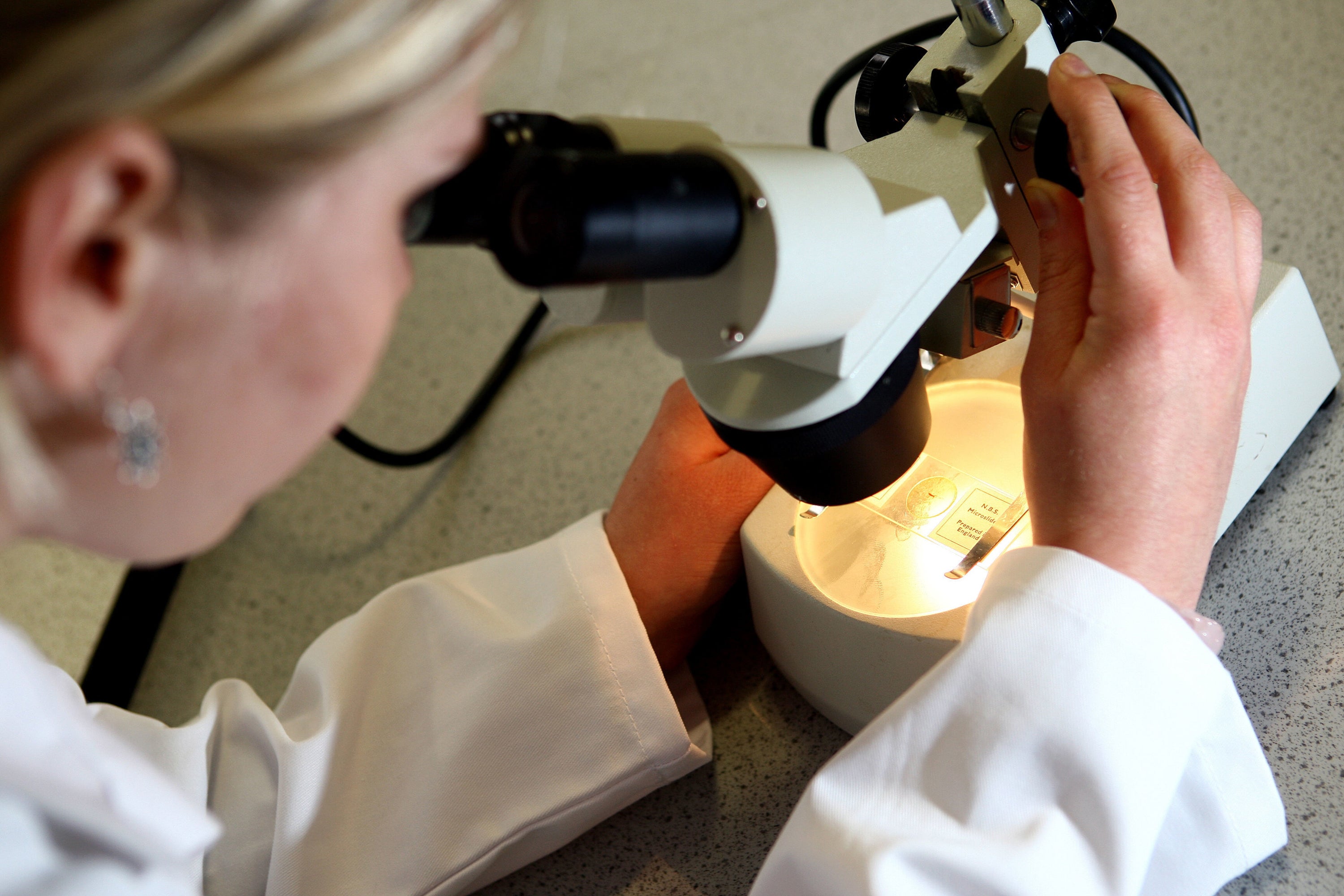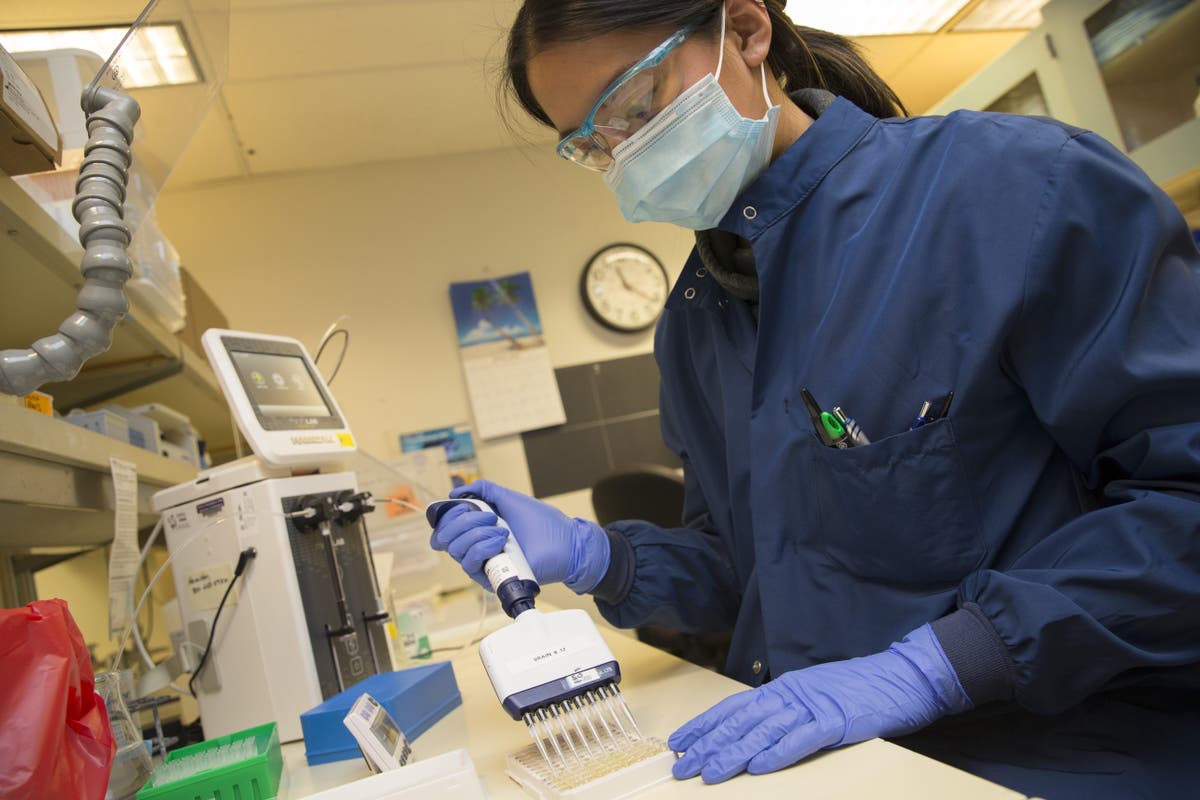Hepatitis outbreak 2022 - latest: Child case rise sparks investigation
Health experts say they cannot rule out link between cases and Covid

The UK’s Health Security Agency (UKHSA) says it is investigating after finding more than 100 cases of sudden hepatitis in children.
Doctors said they had seen "increasing" evidence the problem is linked to adenoviruses - a group of viruses that can cause illnesses such as the common cold and flu.
The HSA said it cannot rule out other possible causes such as Covid, which it is also investigating, but that an adenovirus has been identified in 40 out of the 53 cases so far tested.
The UK Health Agency’s lead investigator into the rise in cases, Dr Meera Chand, said that lockdown restrictions preventing young children from being exposed to the virus could be a factor in why it is hitting them the hardest.
In Britain, cases have reached 81 in England, 14 in Scotland, 11 in Wales and five in Northern Ireland, with the majority of patients under five years old.
No children in the UK have died, it was confirmed, after the World Health Organisation said there had been 169 cases globally with at least one child who had died from the illness.
Recap: Doctors reveal likely cause of mysterious child hepatitis as 11 need urgent transplant
At least 111 cases of sudden hepatitis in children have now been identified in Britain, doctors have revealed amid “increasing” evidence the problem is linked to adenoviruses.
Our health correspondent Rebecca Thomas has more below:

Doctors reveal probable cause of mysterious child hepatitis
WHO - likely more cases will be indentified
The World Health Organisation says it is “very likely” that more cases of the mysterious severe acute hepatitis affecting children will be found in the UK and elsewhere.
“With continued new notifications of recent onset cases, at least in the United Kingdom, together with more extensive case searching, it is very likely that more cases will be detected before the cause can be confirmed and more specific control and prevention measures can be implemented,” WHO said.
“WHO is closely monitoring the situation and working with the United Kingdom health authorities, other Member States and partners.”
Case indentified in Japan
One probable case of the mysterious severe acute hepatitis affecting children has been found in Japan, the country's health ministry has said.
The infection, likely the first case in Asia, was found in a young child, the ministry added.
While an adenovirus was detected in more than 40 per cent of cases globally, the patient in Japan tested negative, according to authorities.
The child, whose age wasn’t disclosed, hasn’t had a liver transplant.
Parents ‘should be alert’ to signs of hepatitis
Parents should be “alert” to the signs of hepatitis amid an outbreak among young children, the UK Health Security Agency has said.
Dr Meera Chand, director of clinical and emerging infections at UKHSA, said: “Information gathered through our investigations increasingly suggests that this rise in sudden onset hepatitis in children is linked to adenovirus infection. However, we are thoroughly investigating other potential causes.
“Parents and guardians should be alert to the signs of hepatitis, including jaundice, and to contact a healthcare professional if they are concerned. Normal hygiene measures such as thorough hand washing, including supervising children, and good thorough respiratory hygiene help to reduce the spread of many common infections, including adenovirus.
“Children experiencing symptoms of a gastrointestinal infection including vomiting and diarrhoea should stay at home and not return to school or nursery until 48 hours after the symptoms have stopped.”
WHO also investigating outbreak
The World Health Organisation says it is also investigating an outbreak of hepatitis in children in 11 different countries.
In a statement issued earlier this week, the WHO said cases have been reported in Spain (13), Israel (12), the United States of America (9), Denmark (6), Ireland (<5), The Netherlands (4), Italy (4), Norway (2), France (2), Romania (1), and Belgium (1) and the UK.
“Adenovirus has been detected in at least 74 cases, and of the number of cases with information on molecular testing, 18 have been identified as F type 4,” the statement said.
“SARS-CoV-2 was identified in 20 cases of those that were tested. Furthermore, 19 were detected with a SARS-CoV-2 and adenovirus co-infection.”
What are adenoviruses?
Adenoviruses are a group of viruses that can affect different parts of the body depending on the type.
The range of illnesses associated with adenoviruses include common cold or flu-like symptoms, a fever and sore throat, according to the US Centers for Disease Control and Prevention website.
My colleague Tom Batchelor has more details below:

What is Adenovirus and what are the symptoms?
The UK Health Agency’s lead investigator into the rise in cases, Dr Meera Chand, said that lockdown restrictions preventing young children from being exposed to the virus could be a factor in why it is hitting them the hardest.
She said there was a “susceptibility factor – so lack of prior exposure of that particular age group during the formative stages that they’ve gone through during the pandemic”.
Our health correspondent Rebecca Thomas reports:

Doctors reveal probable cause of mysterious child hepatitis
Good morning and welcome to The Independent’s coverage of sudden hepatitis cases in children.
Stay tuned for all the latest updates.
Join our commenting forum
Join thought-provoking conversations, follow other Independent readers and see their replies
38Comments